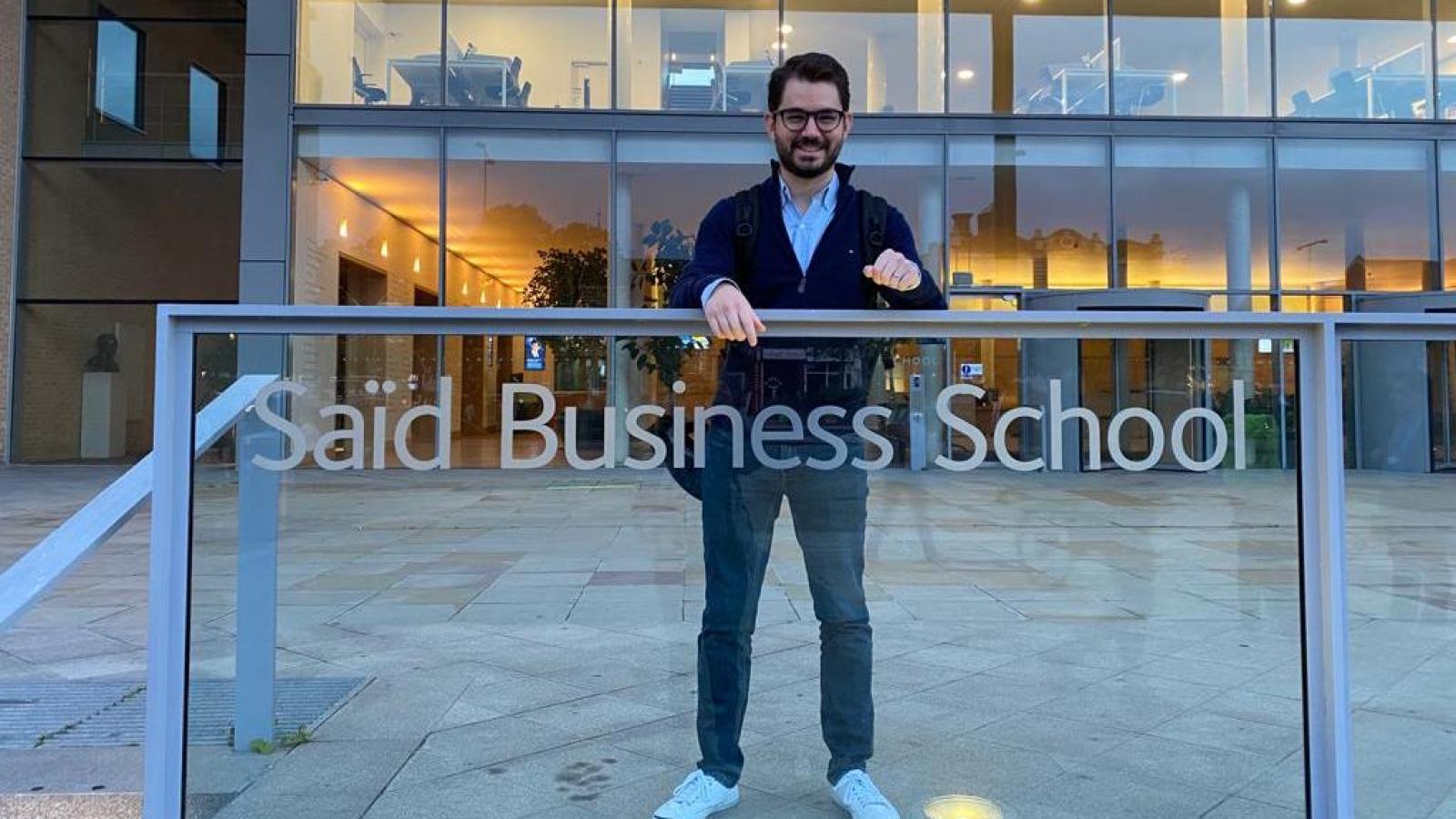Approximately a year ago, I decided to undertake an MBA at Saïd Business School, University of Oxford, because I knew that this school cares about impact. Not for a second have I regretted this decision. I have found that classes, classmates, faculty, and staff are genuinely dedicated to creating an environment that fosters impact through businesses.
Inspired by this notion of impact, very early on in the MBA programme, I decided that I wanted to create a positive impact amongst my cohort; and I wanted to do this from day one – why wait until graduation day? This is why I decided to run for Careers Officer on the Student Council and help my classmates navigate the daunting process of finding the right job. I was convinced I could help them by connecting their career interests and needs to the School’s Career Development Centre’s (CDC) fantastic array of tools. I was fortunate to have been chosen by my friends and classmates for this impactful role.
Now, this purpose of helping my classmates in their own career journey sounds lovely, but how to do it is more complex than it sounds. In this quest, I have had the opportunity to put into practice the following three skills to help my friends and classmates:
Co-creating
This role is all about putting my classmates’ career needs before many other priorities in the School. I am better positioned to help my classmates when I work collaboratively with the Career Development Centre to co-create solutions rather than imposing ideas. For instance, whenever I have an improvement idea, I share it with the CDC team so they bring their own ideas to the discussion. More often than not, we can tap into solutions used for previous cohorts or resources from the wider University. This is incredibly helpful as we have been able to develop better solutions more quickly.
Listening
I have found that by asking questions and paying attention to underlying motivations, I have brought my classmates’ needs to the Career Development Centre and the Student Council in a much more comprehensive way. This sounds simple, but I actually spend a lot of time in informal 'hallway conversations,' talking to my classmates and asking them about their recruitment processes, career interests, and coaching conversations. Capturing this information allows me to return to the Student Council or Careers Development Centre and steer the wheel when discussing recruitment priorities.
Influencing
It isn’t easy to influence the agenda in meetings with Student Council and staff because there are many competing priorities. I have found that the best way to create traction is by establishing frequent dialogue loops between the Career Development Centre and my classmates so that solutions for the cohort are designed or adapted faster. For example, I have helped to establish a series of focus groups, where my classmates voice their concerns, interests, and even tools that they need, so the School has more sensibility on what the priorities are for the cohort.
As I mentioned before, my primary motivation to take this role was to help my classmates in their career journeys. As it turns out, I feel that my classmates have helped a lot by allowing me to practice these three foundational skills needed to create impact in business and society. I look forward to continue doing so during the MBA and after my graduation!





